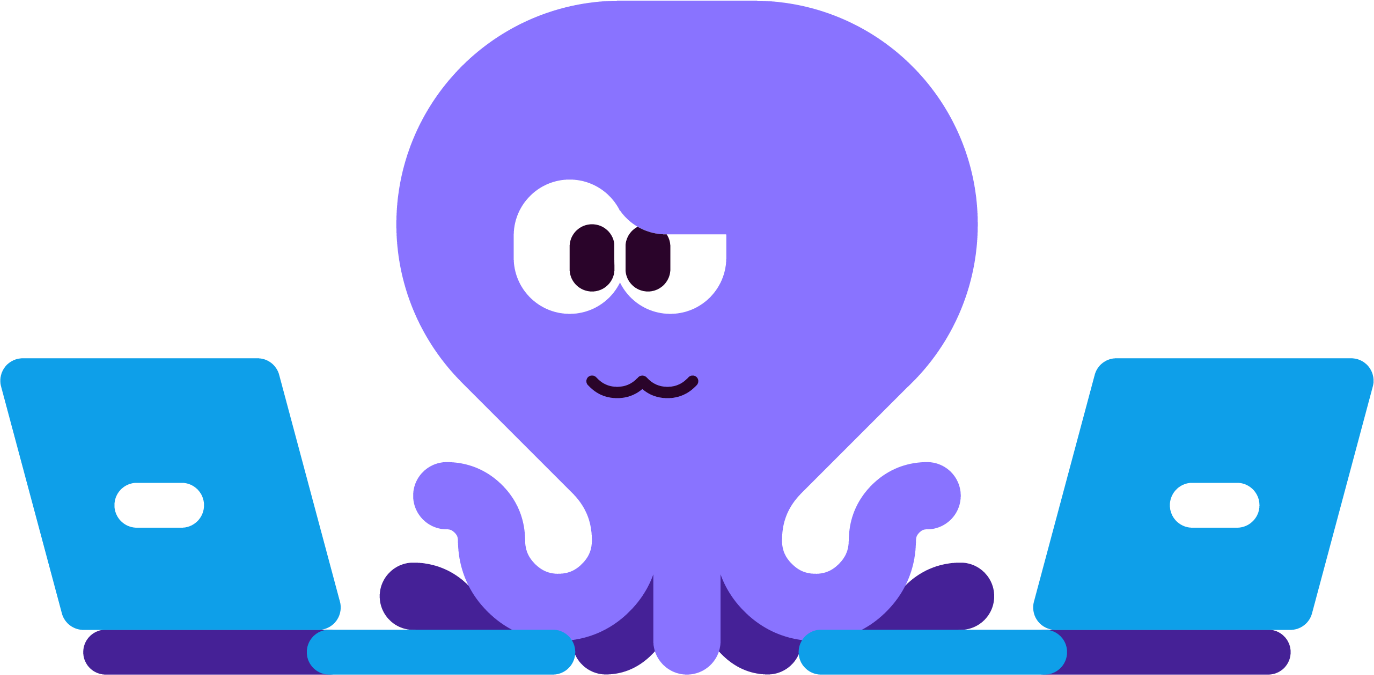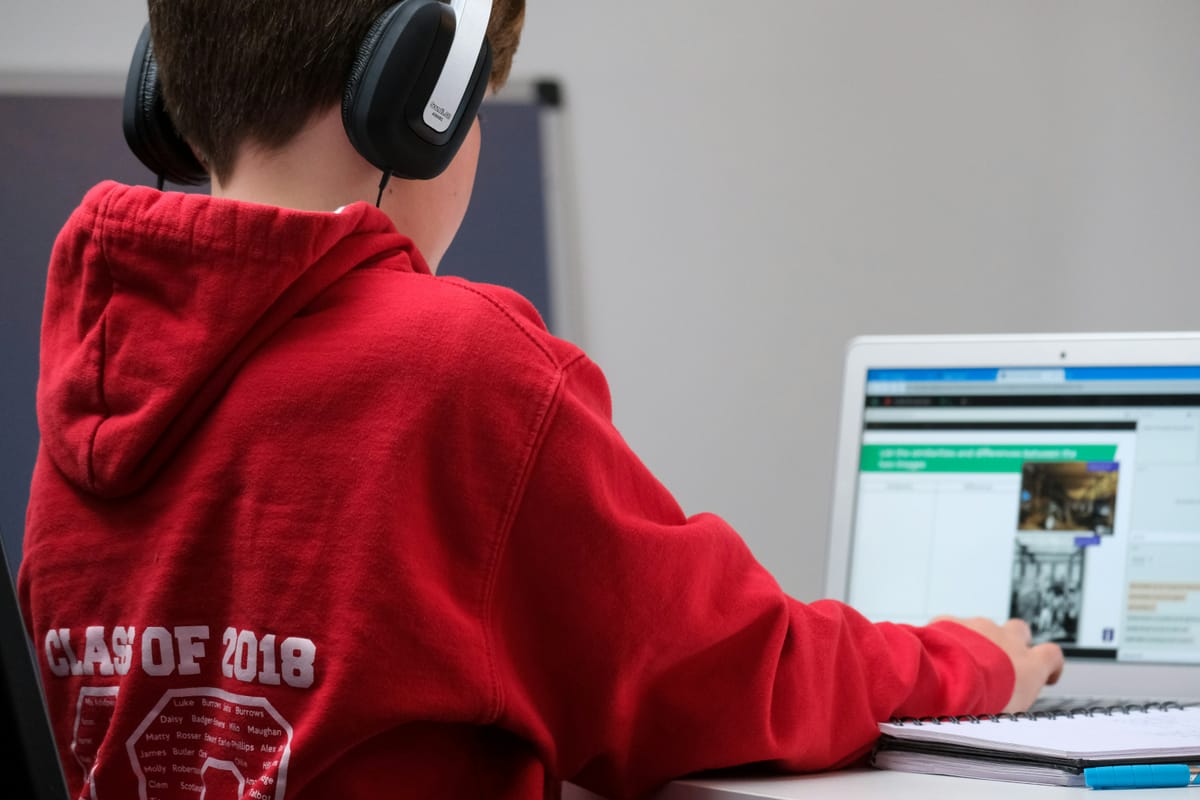Think of your favorite teacher. It probably doesn’t take much effort to conjure up their name. Because teachers have an immense impact on us, an impact that sticks with us throughout our adult lives.
Clearly, teaching is a field that benefits greatly from its humanness. There’s nothing like the connection between students and teachers. So to mention AI in the same breath almost feels like it goes against the laws of nature. But it doesn’t have to.
ChatGPT grew massively in popularity in 2023, bringing AI into the cultural conversation and unleashing an onslaught of moral and existential questions: Does hyper-efficiency come at a human cost? At what point is that cost too high? Does AI belong in art? Where does it belong?
Given that most conversations about AI in education center around job loss, apprehension and fear is a totally reasonable reaction. When public discourse has watered something’s purpose down to nothing more than productivity and reducing labor costs, there’s little to do but fear it.
It’s true that, as with any major technological breakthrough, there are likely to be some unintended negative consequences of AI. And like any tool, it can be misused in the wrong hands. But AI also has the potential to have a profoundly positive impact on the world. And that positive impact is likely to start in classrooms.
We believe that education will be one of the industries most significantly impacted by AI. Making sure that impact is an immensely positive one is top of mind as we build AI tools for educators.
Building AI tools for all teachers
There’s a reason that when teachers tell people what they do for a living, the response is something along the lines of, “You’re a saint!” or “I don’t know how you do it!” Because, however rewarding, it’s an incredibly challenging job.
Those challenges are where we see opportunities for AI to really help make a teacher’s job a little easier.
AI isn’t a teacher. Nor should it be. Kira has no interest in ever seeing classrooms exist without teachers. And our approach to bringing AI into education reflects just that.
When you really boil it down, AI is a tool. Like a Swiss army knife or a spreadsheet. It’s a means to solving a problem. And with constant budget cuts, burnout, etc., teachers encounter no shortage of problems.
No one knows those problems as intricately as teachers themselves, so as we approach solving problems in the classroom, teachers have major involvement. They may not know how to fix everything, or even where to start. That’s where Kira comes in.
Is grading taking up too much time? Try auto-grading. Having trouble giving each student substantial written feedback? Let Kira’s AI write the first draft to get things flowing.
Kira’s AI tools are built to work in partnership with teachers to better leverage their time, which is much better spent with students than a gradebook.
Filling potential skill gaps
If you stay up-to-date on the goings on in education, you’ve definitely heard the phrase “teacher shortage” a time or two (hundred). Throughout 2023 alone, vacant positions in schools increased from 36,000 to over 55,000.
One lesser-discussed issue is around new teachers or teachers being moved to new subject areas. These currently make up between 9 and 10 percent of teachers. Because of increased vacancies, many teachers are being tapped to teach subjects outside of their purview, where they lack specialized expertise.
Computer science is a massive such skill gap.
Subject areas like coding and AI fundamentals are so new that not only have most teachers never taught them, they also likely never learned them when they were students themselves.
Kira’s AI tools are designed to help teachers feel supported and confident as they’re teaching information that is potentially brand new to them. Because supporting teachers, in and of itself, is one of the most important ways to keep students moving forward in their own learning.
Preparing students for an evolving world
We’re entering an interesting time in history for technology. The next decade has the potential to see more technological advancement than ever before. So it stands to reason that today’s students may be going into careers that don’t even exist yet.
We don’t know exactly what the technological landscape will look like, nor do we know exactly what the job market will look like. What we do know is that computer science and AI literacy will increasingly be a part of their lives, professionally and personally.
Like learning any fundamental skills, it can only help students in the long run.
AI is an unknown, and unknowns can be scary.
In our own moments of anxiety, we're reminded that the Internet was once a new tool that offered infinite possibilities, too. A lot of people use the Internet for good. Some people don’t. Because it’s a tool in the hands of people, and people use things differently.
But we do get to choose how we use things, and when it comes to AI, we hope Kira can be at least a small part of the good.
In recent years, we’ve only seen the job of teacher get harder and harder. Tasked with working with less and taking on brutal workloads, all for no extra pay, teachers rise to the occasion time and time again. But they shouldn’t always have to.
AI is going to matter in the future, full stop. But we want Kira’s AI tools to be seen not as some dreaded inevitability, but as an exciting opportunity to, for once, actually make teachers’ jobs easier.
~


